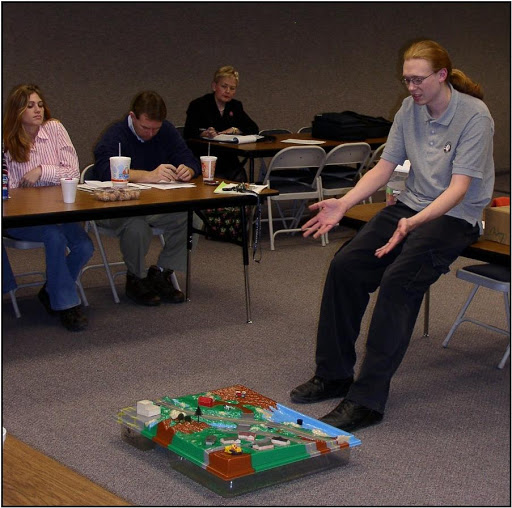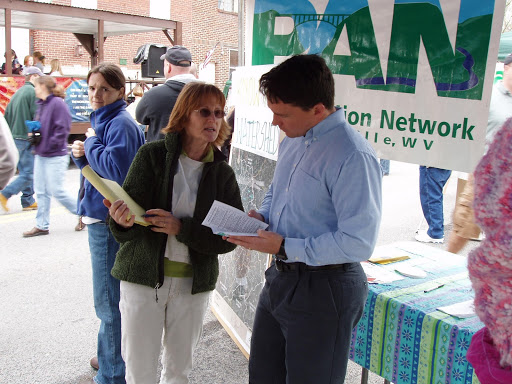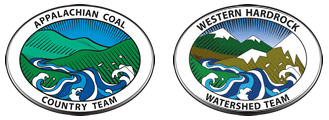Based on the work of
Friends of Deckers Creek
Northern West Virginia
Friends of Deckers Creek (FODC) uses board meetings to spread their mission by making them a forum for the community to share their ideas and discuss the issues they face. FODC holds this board meeting every month. Each month they alternate between “business” and “outreach” meetings. Business meetings cover the usual issues of managing a watershed group. Outreach meetings, although still attended by the board, are focused on reaching out to new or different parts of the community. This has helped the FODC to spread their mission and open new avenues for partnerships. To promote community involvement, they also advise lingering after meetings to answer questions from attendees in order to get to know people from other groups and host meetings in different places across the watershed.

Tested by
Headwaters, Inc.
Southeast Kentucky
Headwaters, Inc. consists of a small board with a moderate list of volunteers. Water quality has been a major issue in Letcher County and they plan to build a network of people and volunteers in the community to address the concerns. They hoped that this approach of going to the people would increase volunteer recruitment and engagement. Headwaters held six different bimonthly meetings. A stream clean-up had 10 volunteers that picked up over 40 bags of garbage and around 30 large items. At the meeting during Whitesburg Day festivities, Headwaters recruited four volunteers and developed a partnership for a video project. Headwaters’ meeting during the October local art walk increased community contacts and secured $175 in donations by raffling a photo of a local recreational lake. As they organized clean-ups and attended community-based functions, they made more personal contacts with organizations throughout the county. In meetings, Headwaters encouraged local community-based groups to take a lead in cleaning up the water that runs through their communities. Headwaters increased their regular volunteer base by approximately six people.
Tested by
Plateau Action Network
Southern West Virginia
Plateau Action Network (PAN) is more than a watershed association and has been involved in several complicated, and sometimes contentious development issues. PAN’s advocacy for complex issues may discourage people from being involved with the organization, which makes capacity building and the creation of public interest events difficult. Faced with these issues, PAN hoped to create some non-threatening, informational events to build relationships to the community and to find new board members. PAN wanted its members and the general community to gain a better understanding of local issues, feel informed enough to speak of them on their own, and become more involved. PAN was able to plan or support a number of informational events for the public, though they were not bi-monthly or quarterly as first planned. PAN learned that some projects are too complex and intimidating to engage the general public. PAN has created a five-year plan and shifted from seeking volunteer capacity to seeking financial capacity in order to hire paid staff. PAN cautions other organizations to be realistic about the group’s abilities and capacity. Without the proper organizational capacity, it is not wise to plan a regular series of events but do them as you are able to.

“Managing and supervising volunteers takes a lot of time and energy and doing it well takes a bit of talent. Not having the time or skills to make good use of volunteers is likely to result in less than positive experiences for those rare volunteers and the volunteer supervisors. It is not a sustainable situation.”
-Plateau Action Network
